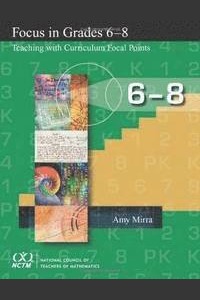
Liknande böcker
Annual Perspectives in Mathematics Education 2014 : Using Research to Improve Instruction
Bok av Karen Karp
Improving Mathematics Instruction for All Students through Research-Based Approaches. Research has long been recognized as a key component to building effective mathematics education for all grades. This 2014 issue of Annual Perspectives in Mathematics Education (APME) focuses on the core of NCTM's mission since its inception: supporting teachers to improve instruction through research-based approaches. The 24 chapters, written by leading mathematics educators and researchers, are grouped into five topic areas: Change; Problem Solving; Reasoning, Explaining, and Discourse; Seeing Structure and Generalizing; and Assessment for Teaching and Learning. These five sections feature a wide range of subjects and approaches that include - how to create a classroom culture that encourages students to be persistent strategies for building on students' explanations in ways that invite them into discussions methods for improving proficiency with the Common Core Standards for Mathematical Practices ways to develop student mathematicians through formative assessment cycles a framework for turning mathematical errors into springboards for learning. The results of the research presented here are exciting and provocative, and this inaugural issue of APME is sure to make an important contribution to supporting the teaching and learning of mathematics at all levels. Chapters include descriptions of the research projects, classroom examples, research observations, lesson plan development, and proven strategies that teachers can apply to the classroom. About Annual Perspectives in Mathematics Education (APME) NCTM's new flagship series is designed to provide a range of perspectives focused each year on a timely topic in mathematics education. APME will take on important subjects and issues, offering a wide range of authors (including classroom teachers, university researchers, and occasionally educators outside of mathematics education), targeting a diverse audience that reflects NCTM's membership, and featuring chapters that span the pre-K-16 spectrum.
Visa pris inkl. frakt Inkl. frakt







